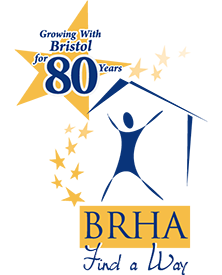On November 12, HUD released the “Instituting Smoke-Free Housing” proposed rule. The proposed rule would require each public housing agency (PHA) administering public housing to implement a smoke-free policy. Comments on the proposed rule are due 60 days after it is published in the Federal Register.The policy would prohibit lit tobacco products in all living units, indoor common areas in public housing and in PHA administrative office buildings. Lit tobacco products refer to those that involve the ignition and burning of tobacco leaves, such as cigarettes, cigars, and pipes. The proposed rule would require smoke-free policies to extend to all outdoor areas up to 25 feet from housing and administrative office buildings (restricted areas). PHAs may, but would not be required to, further limit smoking to outdoor dedicated smoking areas outside the restricted areas, create additional restricted areas in which smoking is prohibited, or, alternatively, make their entire grounds smoke-free. Not included in the proposed rule is the prohibition of electronic nicotine delivery services (ENDS), like e-cigarettes, or waterpipe tobacco smoking, also known as hookahs. HUD is seeking additional comments to determine whether the final rule should prohibit these items as well. PHAs of any size, including Moving-to-Work (MtW) agencies administering public housing units, are affected by the proposed rule. Dwelling units in mixed-finance properties and Section 8 properties are exempt. The proposed rule would require the prohibition on indoor smoking and smoking in restricted areas to be included in a tenant’s lease. This would be done either through an amendment process or as tenants renew their leases annually. The proposed rule includes leases for all public housing properties whether they attached to other units or not. By including the smoking prohibition in the lease,PHAs would be allowed to use enforcement mechanisms already in place and provide an additional notification of the policy to the tenant. Because some tenants may not be recertified before the policy takes effect, PHAs may require that all remaining leases be amended, or may establish their own schedule for lease amendments. PHAs would be required to follow the PIH administrative grievance procedures during enforcement of their smoke-free housing policies. Under the proposed rule, PHAs would have 18 months from the effective date of the final rule to establish compliant smoke-free policies. PHA plans would need to be updated to reflect the smoke-free policy, and PHAs would be required to conduct resident engagement, to hold any public meetings that are required to amend their PHA plans, and to incorporate the required new lease provisions during tenants’ recertifications or at a date before the policy is fully effective. PHAs with existing smoke-free policies would have this time to review their policies to ensure that they are in compliance with the final rule. Tenants with mobility impairments or mental disabilities may seek a reasonable accommodation if they are unable to access non-restricted areas to smoke. Requests for reasonable accommodation must at least be considered, and granted in appropriate circumstances. The Office of Fair Housing and Equal Opportunity (FHEO) would develop guidance on accommodating persons with a disability related to smoke-free housing. HUD is seeking comments to inform that guidance. HUD will continue to provide free webinars and training sessions addressing writing the policies, engaging residents, and assisting residents who want to stop smoking in the coming months. For more information, see HUD-issued guidance encouraging the adoption of smoke-free policies from 2009 and 2012, as well as an action guide from 2014 with additional guidance on implementing smoke-free policies. During a March 2015 call with HUD staff, NAHRO urged the Department to study the challenges posed by a blanket ban on smoking in public housing and to consider alternatives. NAHRO supports and encourages PHAs to adopt smoke-free policies but believes that the discretion to do so should remain at the local level. NAHRO encouraged the Department to evaluate the experiences of PHAs that have pursued non-smoking initiatives and develop a more flexible proposal that reflects its findings. NAHRO believes that alternatives exist that more appropriately balance the goals of creating healthier living environments with the added administrative burdens of enforcing a new policy and the potential negative unintended consequences for residents, particularly the elderly and persons with disabilities. Comments for the proposed rule are due 60 days after the proposed rule is published in the Federal Register. NAHRO will be submitting comprehensive comments on behalf of the organization. NAHRO staff welcome feedback and input from the membership at large and request that all information be sent to Eric Oberdorfer, NAHRO’s Policy Advisor for Public and Affordable Housing. |
 |
© 2024 - Bristol Redevelopment & Housing Authority. |
